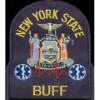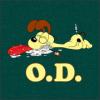Leaderboard
Popular Content
Showing content with the highest reputation on 12/22/2010 in all areas
-
Well, I did my first cardiac arrest the other night and my patient did not make it. On the way to the call I was running through my CPR protocol in my head and what I would do when I arrived on scene. For the most part it went the way I thought it would go. When my partner and I arrived on scene and walked in the house there were no lights on inside except for one. So I called out " its the paramedics " I never got a response, so I went towards the light and the first thing I see in the bedroom is a woman performing CPR while holding the phone between her ear and her shoulder talking to whom I assumed was dispatch. I was taken back by what I was seeing as I pictured a person laying on the floor unconscious, not seeing the patients wife performing CPR on her husband in their bed talking to dispatch. My insticts took over and I told the woman I will take over, and I started chest compressions while I waited for my partner to arrive in the bedroom to help me move the patient to the floor. From there we ran our protocol and transported the patient performing CPR in the back of the ambulance. Unfortunatley my patient did not make it. Once we transfered care over to the attending physician I went out and spoke with the wife to see if there was anybody we could call for her, but she said no. That was the hardest part to take, as I felt she needed someone there to comfort her while she was waiting to find out if her husband will make it or not. Fire stayed with her for a bit, but had to leave. After the call I had took some time to think about the call and I could not help, but to think if there was ANYTHING else I could have done that may have resulted in a better outcome? After I was finished thinking to myself, I went back into the hospital to complete my PCR form and I had a chance to speak to one of the nurses and she told me I had done a good job and when I arrived that I was very calm for someone who had just done their first cardiac arrest. She also said try not to think about the call too much and sometimes things just don't work out the way we think they should. She said it gets easier as you do more cardiac arrests. Does it? It has been two days since the call and I can still picture the wife performing CPR on the bed, as well as I keep picturing the guy's face as well. I am not sure if that is normal after doing a cardiac arrest, but I sure hope that I blank it out of my mind soon. I am not upset about the call, as I have had no problems sleeping, but for some reason I just can't get the call out of me HEAD!! It could be because it is so close to Christmas and that it was my first cardiac arrest. We had a hard time finding the house so I think what if we had gotten there sooner could we have saved him? Was I performing chest compressions well enough? Well that was my first experience attending a cardiac arrest and I have to say it is alot different then how they make it out to be in the class room. Well, once that call was over off I went to go do my very first seizure call..Man what a night1 point
-
Really? Because I am an experienced instructor at a well known and nationally accredited paramedic program. I don't think it is fair to say that my feelings about paramedic students derives from "ignorance" of this educational system. Far from it. I believe that preparation at the EMT level is absolutely essential to the development of good paramedics. Paramedic training is extremely abbreviated for the amount of responsibility and accountability the job demands, and I think students need to be completely comfortable with "the basics" before they can attempt to focus on advanced medical care. By "basics," I mean proper scene control, patient interaction, equipment management, radio, scene, and hospital reports (written and oral), dealing with family, coordinating resources, and general comfort within the system. Graduates from paramedic programs are expected not only to be experts in their medical care, but leaders in the field. It is my firm opinion that you cannot be an effective leader without experience in how the system works, and if recent graduates have to focus their attention on that aspect then the medicine will suffer. I've seen it happen and it is ugly. You can try and make the argument that nurses and doctors don't require this kind of preparatory training, but it just isn't a fair comparison. First of all, medical school starts with a four year undergraduate degree followed by four more years of medical school. Then there is residency training that lasts several more years. You simply cannot compare that to the 1600 hour class that paramedics get. As far as nurses, they work under the direct supervision and instruction of physicians inside a controlled and highly regulated environment. There is a safety net there that we don't get out in the field. Paramedics are expected to work independently in dynamic, uncontrolled, and often dangerous situations in first few minutes following an incident. Moreover, individual paramedics are expected to be leaders right out of the box, and serve as the absolute highest level of care on a given scene. This is NOT asked of new nurses. If you respect the work that we do, you must recognize that paramedics face difficulties and responsibilities that many other healthcare professionals just don't see. New graduates need to be thoroughly prepared for this job before they start shouldering the whole load on their own, and I believe that preparation starts with a sold BLS background. Despite your attempt to buffer it, you are defending accelerated paramedic training by saying that the job we do isn't deserving of the time and effort. This can be an extremely demanding job, and our young need to be throughly prepared. Start with that. See above. Entry level RNs and MDs don't work in our environment, and aren't expected to immediately perform as sole leaders with very little safety nets or assistance. Our jobs are NOT THE SAME. Really? Because you have to have an undergraduate degree and solid MCAT score before you even think about medical school, and nursing training has prerequisites that take more time than the entirety of paramedic education. What do we require? A high school diploma and/or a pulse? Ours is a unique and demanding job that takes place in dynamic and uncontrolled environments. I believe that respect for this work very much warrants some extra thought about how we train our candidates.1 point
-
No such thing as a 3 month RN Program from EMT-P to RN. I'm doing that and there are 8 Nursing Courses at Excelsior College; I'm on my seven. You can do one every month but can't complete in 3 months. After the Nursing Courses; you have to wait for the FCCA Practicals then CPE. After this then you'll receive an ASN; w/ this u can take ur NCLEX for ur RN; which can be a 3 month waiting process. Don't buy into quick schemes; you will lose ur money and time. You should be vollying or working; gain exp as an EMT-B first. EMT to EMT-P is not a step; its not a flight; its many floors apart. RN and EMT-P are not the same. Nursing is a field centuries ahead. Paramedics would be closing the gap if EMS ppl stuck together and strive 4 change.1 point
-
well I am not seeing anything... every other website works fine but this one.. *shrugs*1 point
-
Why were they looking for veins in the palms of the hands and soles of the feet anyways? The story doesn't seem to make sense....1 point
-
Support and stand behind your troops, asshole ... or feel free to enlist and stand in front of them. You're obviously of no decent character, so in no position to be judging others as you just have.1 point
-
Lone, you may do well on a grammar test but you failed when it came to posting on internet forums. You forgot to include the link, man.1 point
-
First of all sorry i've been off these forums for a couple of months. I am currently a 2nd Year student undertaking the Bachelor of Paramedic Science on QLD's Sunshine Coast. The hope is that in approx. 14 months time I will be qualified and employed by QAS. QAS and ASNSW are the only 2 services left in Australia where you don't have to be degree qualified, however, I know here in QLD you have to be degree qualified to become an ICP. I don't really know of any American paramedics over here, however, I know of a couple of Canadian paramedics who have been forced to start at a lower level and complete some assessments before they were granted advanced care paramedic level. Sorry i'm not sure what level they were back home. Here in QLD some protocols that ICPs have that ACPs don't include: *IV Salbutamol, amiodarone, tenectaplase, heparin, haloperidol, benztropine, atropine, clopidogrel, frusemide, ketamine, promethazine, sodium bic, hydrocortisone. Drug Therapy Protocols (DTPs): http://www.ambulance.qld.gov.au/Medical/dtp.asp *chest decompression, IO, cardioversion, transcutaneous pacing, ET intubation, ETCO2 monitoring That's definitely not all skills they have that ACPs don't but just a few off the top of my head. All the best with ASNSW, hope you get the chance to live your dream.1 point
-
A B will say B. An I will say I. There will be a fight between the I-85 & I-99. A CC will say CC. A P will say P... But P is high.-1 points





